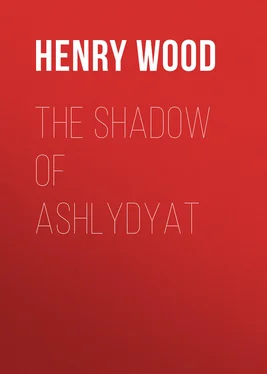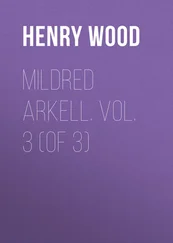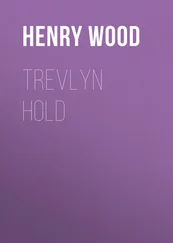Henry Wood - The Shadow of Ashlydyat
Здесь есть возможность читать онлайн «Henry Wood - The Shadow of Ashlydyat» — ознакомительный отрывок электронной книги совершенно бесплатно, а после прочтения отрывка купить полную версию. В некоторых случаях можно слушать аудио, скачать через торрент в формате fb2 и присутствует краткое содержание. Жанр: foreign_prose, literature_19, foreign_antique, на английском языке. Описание произведения, (предисловие) а так же отзывы посетителей доступны на портале библиотеки ЛибКат.
- Название:The Shadow of Ashlydyat
- Автор:
- Жанр:
- Год:неизвестен
- ISBN:нет данных
- Рейтинг книги:4 / 5. Голосов: 1
-
Избранное:Добавить в избранное
- Отзывы:
-
Ваша оценка:
- 80
- 1
- 2
- 3
- 4
- 5
The Shadow of Ashlydyat: краткое содержание, описание и аннотация
Предлагаем к чтению аннотацию, описание, краткое содержание или предисловие (зависит от того, что написал сам автор книги «The Shadow of Ashlydyat»). Если вы не нашли необходимую информацию о книге — напишите в комментариях, мы постараемся отыскать её.
The Shadow of Ashlydyat — читать онлайн ознакомительный отрывок
Ниже представлен текст книги, разбитый по страницам. Система сохранения места последней прочитанной страницы, позволяет с удобством читать онлайн бесплатно книгу «The Shadow of Ashlydyat», без необходимости каждый раз заново искать на чём Вы остановились. Поставьте закладку, и сможете в любой момент перейти на страницу, на которой закончили чтение.
Интервал:
Закладка:
A stronger gust sent the leaves rustling up the path, and Mrs. Hastings slightly shivered.
“How I dislike this time of year,” she exclaimed. “I wish there were no autumn. I dislike to see the dead leaves.”
“I like the autumn: although it heralds in the winter.”
The reply came from Mr. Hastings, who was pacing the carpet, thinking over his next day’s sermon: for it was Saturday morning. Nature had not intended Mr. Hastings for a parson, and his sermons were the bane of his life. An excellent man; a most efficient pastor of a parish; a gentleman; a scholar, abounding in good practical sense; but not a preacher. Sometimes he wrote his sermons, sometimes he tried the extempore plan; but, let him do as he would, there was always a conviction of failure, as to his sermons winning their way to his hearers’ hearts. He was under middle height, with keen aquiline features, his dark hair already sprinkled with grey.
“I am glad the wind has changed,” remarked the Rector. “We shall say good-bye to the fever. While that warm weather lasted, I always had my fears of its breaking out again. It was only coquetting with us. I wonder–”
Mr. Hastings stopped, as if lapsing into thought. Mrs. Hastings inquired what his “wonder” might be.
“I was thinking of Sir George Godolphin,” he continued. “One thought leads to another and another, until we should find them a strange train, if we traced them back to their origin. Beginning with dead leaves, and ending with—metaphysics.”
“What are you talking of, Isaac?” his wife asked in surprise.
A half-smile crossed the thin delicate lips of Mr. Hastings. “You spoke of the dead leaves: that led to the thought of the fever; the fever to the bad drainage; the bad drainage to the declaration of Sir George Godolphin that, if he lived until next year, it should be remedied, even though he had to meet the expense himself. Then the train went on to speculate upon whether Sir George would live; and next upon whether this change of weather may not cause my lady to relinquish her journey; and lastly, to Maria. Cold Scotland, if we are to have a season of bleak winds, cannot be beneficial to Sir George.”
“Lady Godolphin has set her mind upon going. She is not likely to relinquish it.”
“Mark you, Caroline,” said Mr. Hastings, halting in his promenade, and standing opposite his wife; “it is her dread of the fever that is sending her to Scotland. But for that, she would not go, now that it is so late in the year. And for Maria’s sake I wish she would not. I do not now wish Maria to go to Scotland.”
“Why?” asked Mrs. Hastings.
Mr. Hastings knitted his brow. “It is an objection more easily felt than explained.”
“When the invitation was given in the summer, you were pleased that she should accept it.”
“Yes; I acknowledge it: and, had they gone then, I should have felt no repugnance to the visit. But I do feel a repugnance to it now, so far as Maria is concerned; an unaccountable repugnance. If you ask me to explain it, or to tell you what my reason is, I can only answer that I am unable to do so. It is this want of reason, good or bad, which has prevented my entirely withdrawing the consent I gave. I essayed to do so, when Lady Godolphin was here on Thursday; but she pressed me closely, and, having no sound or plausible argument to bring forward against it, my opposition broke down.”
Mrs. Hastings wondered. Never was there a man less given to whims and fancies than the Reverend Isaac Hastings. His actions and thoughts were based on the sound principle of plain matter-of-fact sense: he was practical in all things; there was not a grain of ideality in his composition.
At that moment a visitor’s knock was heard. Mrs. Hastings glanced across the hall, and saw her second daughter enter. She wore her grey cashmere cloak, soft and fine in texture, delicate in hue; a pretty morning dress, and a straw bonnet trimmed with white. A healthy colour shone on her delicate face, and her eyes were sparkling with inward happiness. Very attractive, very ladylike, was Maria Hastings.
“I was obliged to come this morning, mamma,” she said, when greetings had passed. “Some of my things are still here which I wish to take, and I must collect them and send them to the Folly. We start early on Monday morning; everything must be packed to-day.”
“One would suppose you were off for a year, Maria,” exclaimed Mr. Hastings, “to hear you talk of ‘collecting your things.’ How many trunk-loads have you already at the Folly?”
“Only two, papa,” she replied, laughing, and wondering why Mr. Hastings should speak so sternly. “They are chiefly trifles that I have come for; books, and other things: not clothes.”
“Your papa thought it likely that Lady Godolphin would not now go, as the fine weather seems to be leaving us,” said Mrs. Hastings.
“Oh yes, she will,” replied Maria. “Her mind is fully made up. Did you not know that the orders had already been sent into Berwickshire? And some of the servants went on this morning?”
“Great ladies change their minds sometimes,” remarked Mr. Hastings in a cynical tone.
Maria shook her head. She had untied her bonnet-strings, and was unfastening her mantle. “Sir George, who has risen to breakfast since Thursday, asked Lady Godolphin this morning whether it would not be late for Scotland, and she resented the remark. What do you think she said, mamma? That if there was nothing else to take her to Scotland, this absurd rumour, of the Shadow’s having come again, would drive her thither.”
“What’s that, Maria?” demanded the clergyman in a sharp, displeased accent.
“A rumour has arisen, papa, that the Shadow is appearing at Ashlydyat. It was seen on Wednesday night. On Thursday night, some of us went to the ash-trees–”
“ You went?” interrupted the Rector.
“Yes, papa,” she answered, her voice growing timid, for he spoke in a tone of great displeasure. “I, and Miss Godolphin, and Bessy. We were not alone: George Godolphin was with us.”
“And what did you see?” eagerly interposed Mrs. Hastings, who possessed more of the organ of marvel in her composition than her husband.
“Mamma, we saw nothing. Only the Dark Plain lying quietly under the moonlight. There appeared to be nothing to see; nothing unusual.”
“But that I hear you say this with my own ears, I should not have believed you capable of giving utterance to folly so intense,” sternly exclaimed Mr. Hastings to his daughter. “Are you the child of Christian parents? have you received an enlightened education?”
Maria’s eyelids fell under the reproof, and the soft colour in her cheeks deepened.
“That a daughter of mine should confess to running after a ‘shadow’!” he continued, really with more asperity than the case seemed to need. But the Rector of All Souls’ was one who would have deemed it little less heresy to doubt his Bible, than to countenance a tale of superstition. He repudiated such with the greatest contempt: he never, even though proof positive had been brought before his eyes, could accord to it an iota of credence. “An absurd tale of a ‘shadow,’ worthy only to be told to those who, in their blind credulity, formerly burnt poor creatures as witches; worthy only to amuse the ears of ignorant urchins, whom we put into our fields to frighten away the crows! And my daughter has lent herself to it! Can this be the result of your training, madam?”—turning angrily to his wife. “Or of mine?”
“I did not run after it from my own curiosity; I went because the rest went,” answered poor Maria in her confusion, all too conscious that the stolen moonlight walk with Mr. George Godolphin had been a far more powerful motive to the expedition than the “Shadow.” “Miss Pain saw it on Wednesday night; Margery saw it–”
Читать дальшеИнтервал:
Закладка:
Похожие книги на «The Shadow of Ashlydyat»
Представляем Вашему вниманию похожие книги на «The Shadow of Ashlydyat» списком для выбора. Мы отобрали схожую по названию и смыслу литературу в надежде предоставить читателям больше вариантов отыскать новые, интересные, ещё непрочитанные произведения.
Обсуждение, отзывы о книге «The Shadow of Ashlydyat» и просто собственные мнения читателей. Оставьте ваши комментарии, напишите, что Вы думаете о произведении, его смысле или главных героях. Укажите что конкретно понравилось, а что нет, и почему Вы так считаете.












